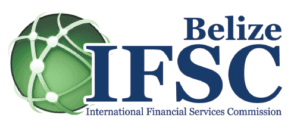
International Financial Services Commission (IFSC)
In recent times, Belize has constructed a financial system that has made the country a favorite among investors. The country’s reputation of incorporating new technological solutions and following global economic changes makes it extremely investor friendly. However, where there’s investment, there’s a risk of financial misconduct. Thus, the country needed to establish regulatory bodies that would prevent or minimize such behavior.
One of those bodies is the International Financial Services Commission (IFSC), which controls the Belize offshore industry. As the country has become a favorite location for online brokerages, they seem to be the IFSC’s primary interest area. The commission was established on May 3rd, 1999. The enactment of the International Financial Services Commission Act (IFSCA) is what preceded it. In 2000, the regulatory body was up and running at full functionality.
The current head of the IFSC also serves as the Financial Secretary of Belize. Below them is the Director General of the Commission, also serving as Chief Executive Officer of the Commission. The Director General also has the additional role of ex-officio Deputy Chairman of the Commission.
The IFSCA imposed multiple responsibilities on the IFSC, including the protection, promotion, and enhancement of Belize’s international financial services center role. However, looking at those three words, you’d get a gross oversimplification of what the International Financial Services Commission does. Let’s plunge a bit deeper and take a more detailed look at the commission’s functioning and goals.
Overview of the Financial Services Commission (FSC) of Belize:
- Regulatory Scope: The FSC regulates services provided by entities licensed or registered under the Financial Services Commission Act, 2023, and the Securities Industry Act, 2021 (SIA). This includes a broad range of non-bank financial services.
- Nature and Approach: The FSC is an independent, self-financing statutory body. It adopts a service-oriented, continuous, and risk-based approach to regulation. The commission’s operations are built on principles of integrity, accountability, adaptability, and reliability.
- International Merchant Marine Registry of Belize (IMMARBE): Governed under the Merchant Ships (Registration) Act, IMMARBE oversees all registrations, technical, and seafarers’ services related to maritime operations. It is known for its high standard of services and operations in the maritime industry.
- Belize High Seas Fisheries Unit (BHSFU): Established in 2013, the BHSFU is responsible for regulating and controlling Belize-flagged vessels engaged in fishing or related activities on the high seas. It promotes responsible and sustainable fishing practices and contributes to Belize’s national income.
- Belize Companies and Corporate Affairs Registry (BCCAR): This is Belize’s business registry for both domestic and international business entities. It includes companies, business names, limited liability partnerships, international business companies, international foundations, international limited liability companies, protected cell companies, and trusts. The BCCAR ensures that all firms or individuals conducting business in Belize are duly registered.
- Locations and Accessibility: The BCCAR has offices in Belize City and Belmopan City. Registry services are accessible via email, and more information can be found on their website.
The FSC of Belize plays a crucial role in maintaining the integrity and sustainability of various financial and corporate sectors within the country, contributing significantly to Belize’s economic framework and international reputation.
IFSC’s Vision, Mission, and Core Values
The vision of the IFSC is to create a thriving financial services center where different entities can compete on even grounds. Naturally, that implies the entities act fairly, promoting and conducting good business practices.
The commission’s mission is to support the evolution of Belize’s sector of financial services. It strives to achieve that by product enhancement, professional skills, market expansion, and effective
However, the IFSC also has a mandate which establishes its core functions. Those functions determine a large portion of how the watchdog acts. With our previous statement of protection, promotion, and enhancement, we have only scratched the surface, so we should go into more detail now.
- The promotion and development of Belize’s status as a center for international financial services.
- The protection and enhancement of the country’s reputation as an offshore financial center.
- Supervising and regulating international financial services
- The formulation of regulatory policies; Advising and assisting the government in regulating financial services.
- The collection, storage, and dissemination of factual and timely information regarding the services to parties it may concern.
To ensure it can carry out those functions smoothly, the IFSC works with other national and international departments and agencies. Internally, it cooperates with the Belize Tax Services, Central Bank, Attorney General’s Ministry, and the Financial Intelligence Unit. However, the IFSC also plays a role in preventing international money laundering and terrorist financing. As such, the commission facilitates Belize’s inclusion in the Organization of Economic Cooperation and Development and the Caribbean Financial Action Task Force.
International Financial Services Commission and Online Brokers
While the IFSC covers a broad area of financial services, its presence is most apparent in the online brokerage world. Belize is a popular location for online brokers and analyzing the commission’s relationship with them provides clarification about its functions.
The first requirement the regulator has is an acceptable level of unimpaired capital. Initially, the limit was $100,000, which some deemed as quite low for financial institutions that handle potential millions in customer funds. The critics turned out to be correct, as the IFSC raised its limit recently, which now sits at $500,000.
Next, the commission requires the separation of company and customer funds. That prevents financial entities from draining customer accounts to keep their operations running. Thus, it’s a layer that prevents malicious firms from damaging customers. On top of that, companies must send monthly reports to their clients to verify the validity of their operations. Lastly, the firms need to secure a formal way for customers to submit complaints in cases of foul play.
Additionally, the companies IFSC watches over need to submit reports that include trade volumes and unimpaired capital. However, many have criticized the commission because they feel the reports do not need to be comprehensive. Additionally, the regulator has earned somewhat of a negative reputation as being too lenient.
-
Support
-
Platform
-
Spread
-
Trading Instrument




